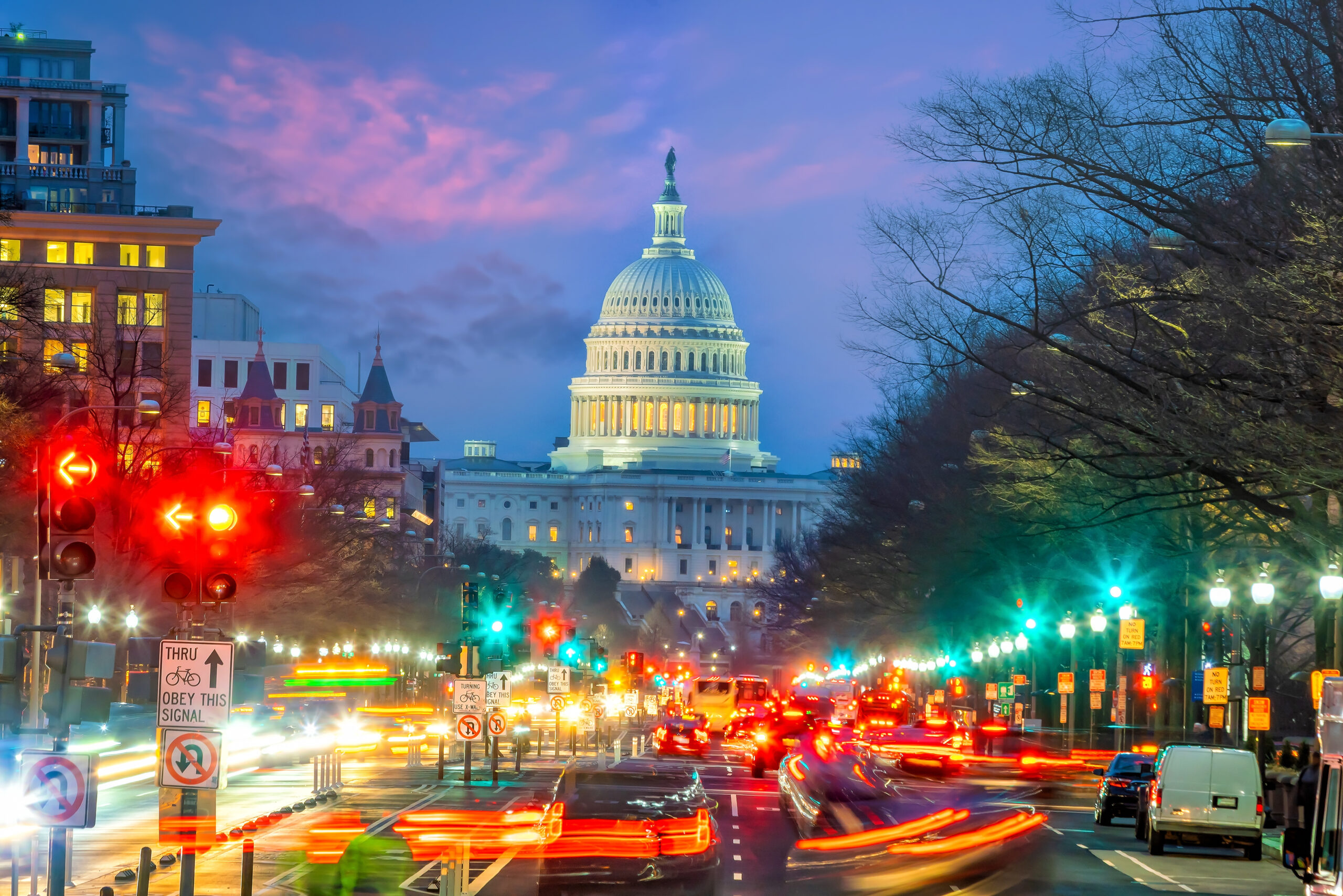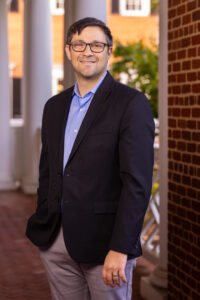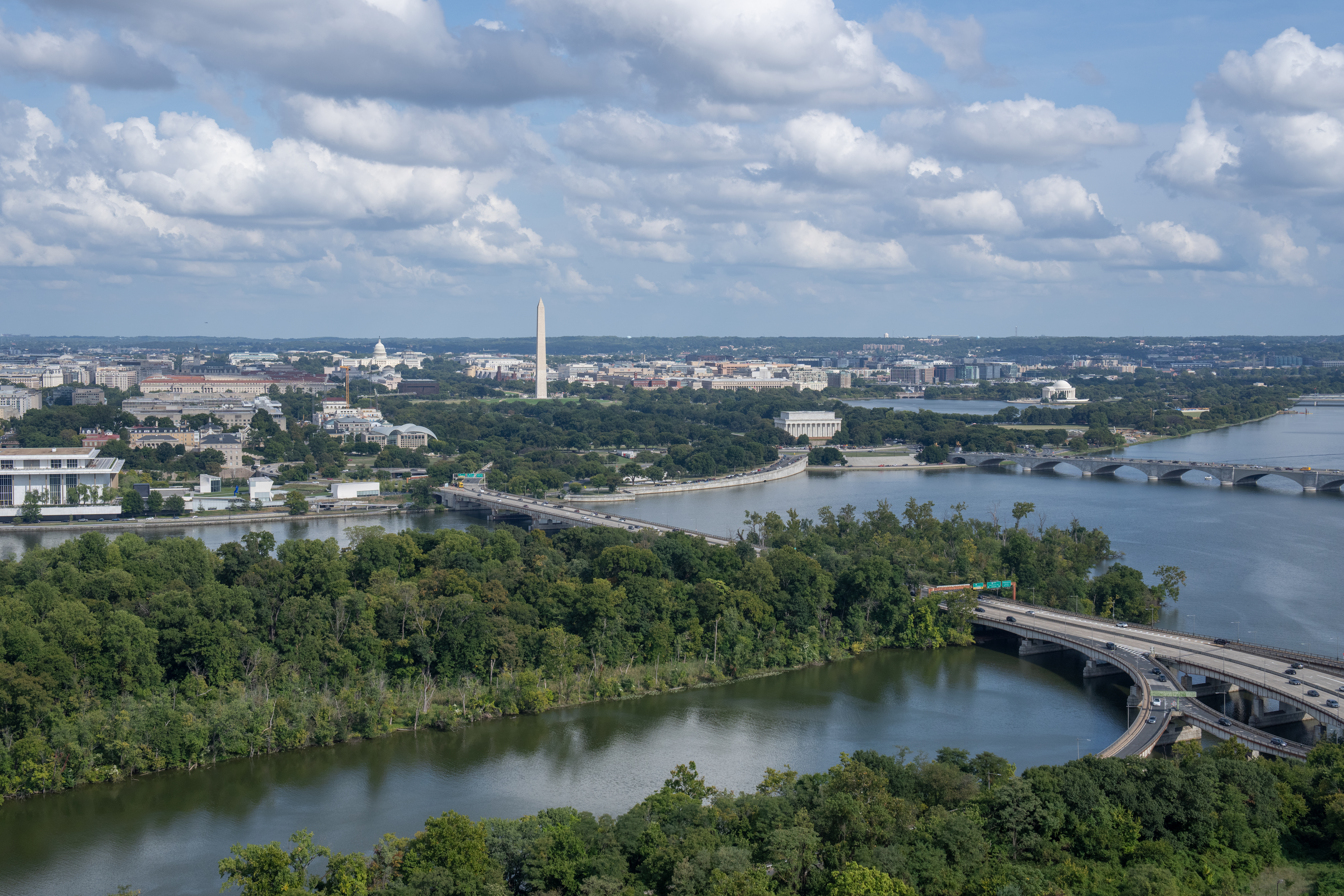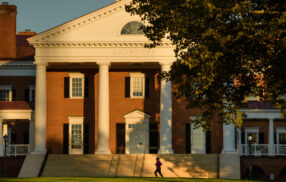
Darden Professor Awarded $470,000 Federal Grant to Improve DC Traffic Safety Through Data Analytics
By Lauren Foster
Behind every traffic accident statistic lies a human story — a commuter, a parent walking their child to school, a student on a bike. Now, a team of researchers is harnessing the power of data science to help make Washington D.C.’s streets safer for everyone.
University of Virginia Darden School of Business associate professor Chris Parker, along with his colleagues at the Data-Driven Streets (DDS) project, has been awarded a $470,000 federal grant from the District of Columbia Highway Safety Office to enhance traffic safety in the nation’s capital through innovative data analysis.
The grant, which covers the 2024-2025 federal fiscal year, will support the team’s ongoing efforts to create a more comprehensive understanding of traffic incidents in Washington, D.C., with a particular focus on addressing underreported crashes and improving safety for pedestrians and cyclists.

Professor Chris Parker’s research focuses on the impact of information technology on operations.
“Our research has shown that between 30% and 40% of crashes go unreported in the official crash data,” says Parker. “This grant will allow us to further our work on de-biasing the police-reported crash data.”
A lack of comprehensive police-reported crash data in the nation’s capital creates blind spots in our understanding of traffic safety, particularly in areas with lower average incomes and a higher proportion of people of color.
“Without the right data, limited resources may not be allocated to the places where crashes are most common,” Parker says. “When a large number of crashes go unreported in parts of the city that have been traditionally left behind, we further inequity.”
The project builds on D.C.’s Vision Zero initiative, launched in 2015 with the goal of eliminating all traffic fatalities and serious injuries by 2024. Despite these efforts, the city has faced significant challenges — traffic fatalities reached 52 in 2023, the highest number since 2007. The district’s pedestrian and cyclist fatality rate as a percentage of total traffic fatalities stands at 7.3%, significantly higher than the national average of 2.2%.
To address these challenges, Parker and his team will continue to collect 911-dispatch data to de-bias the police-reported crash info, and they are incorporating additional datasets to see if they can predict crashes more accurately.
“We are also building a dashboard that will let the city see where students must cross unsafe streets in order to get to school,” says Parker, whose research focuses on exploring the way in which information changes consumer, firm and employee behavior and the impact this has on broader market outcomes.
The project team includes Charlotte Jackson, a senior data science professional and member of the Pedestrian Advisory Council representing Ward 3, Jonah Weissman, a software development engineer, and Karthik Balasubramanian, an assistant professor of information systems at Howard University. The team is supported by a number of research assistants and volunteers.
The federal grant will support various aspects of the project, including research assistance, software, audio transcription services, and data purchases. The team will also work on creating an application programming interface, or API, that allows other users to access the data while maintaining privacy and adherence to data use agreements.
The findings and tools developed through this project could have implications beyond Washington, D.C. As cities nationwide grapple with similar challenges in traffic safety and data collection, the methodologies developed by Parker and his team could serve as a model for other urban areas seeking to improve their traffic safety programs.
For more information about the project and its impact on urban safety, visit Data-Driven Streets.
The University of Virginia Darden School of Business prepares responsible global leaders through unparalleled transformational learning experiences. Darden’s graduate degree programs (MBA, MSBA and Ph.D.) and Executive Education & Lifelong Learning programs offered by the Darden School Foundation set the stage for a lifetime of career advancement and impact. Darden’s top-ranked faculty, renowned for teaching excellence, inspires and shapes modern business leadership worldwide through research, thought leadership and business publishing. Darden has Grounds in Charlottesville, Virginia, and the Washington, D.C., area and a global community that includes 18,000 alumni in 90 countries. Darden was established in 1955 at the University of Virginia, a top public university founded by Thomas Jefferson in 1819 in Charlottesville, Virginia.
Press Contact
Molly Mitchell
Senior Associate Director, Editorial and Media Relations
Darden School of Business
University of Virginia
MitchellM@darden.virginia.edu




